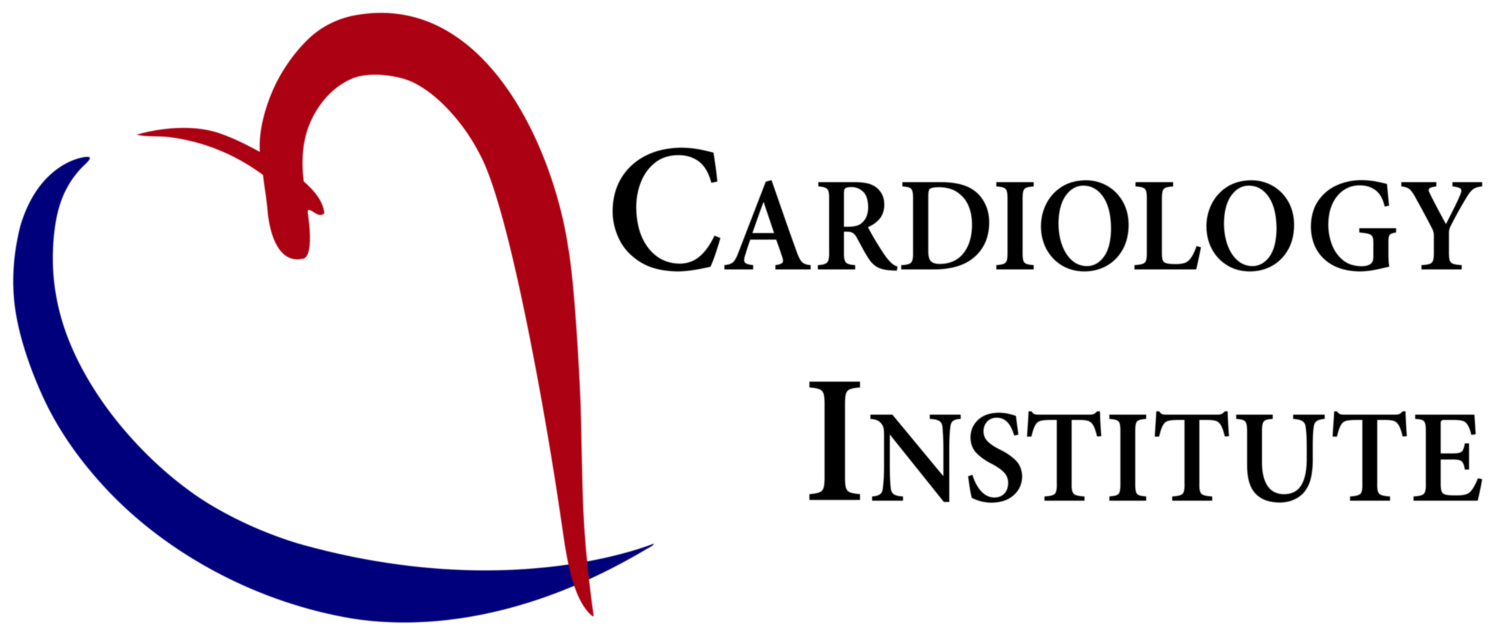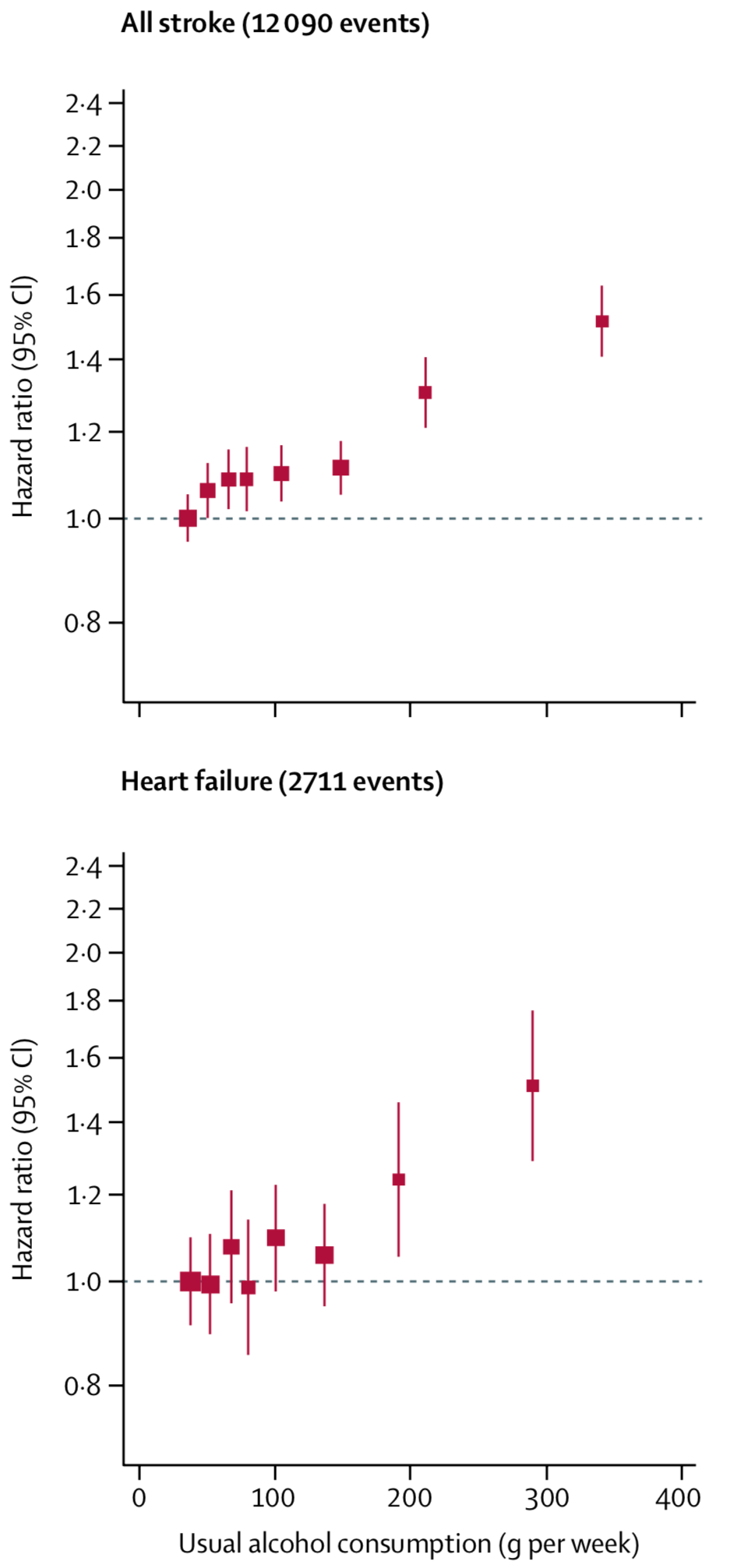Cardiologists are often asked how much alcohol one should drink to improve their heart health. This was based on previous studies suggesting that drinking moderately, possibly red wine, may prevent heart events.
A recent study published in the Lancet of almost 600000 patients from 19 high income countries investigated alcohol consumption on cardiovascular disease and overall mortality. The results might not be what many expected.
Below are four graphs that summarise the findings very nicely.
Heart attack risk does decrease with alcohol consumption, in a log-linear fashion.
However, both stroke risk and heart failure risk increase with alcohol consumption roughly linearly.
So, when combined, overall cardiovascular disease risks follow a U-shaped relationship; in other words, risk appears lowest around 100g per week.
All-cause mortality risk has a positive, curvilinear association with alcohol assumption, i.e. mortality risk is lowest for 0-100g per week. Exceeding that, life expectancy at age 40 would be lower by 6 months for 100-200g per week, 1-2 years for 200-350g per week, and 4-5 years for >350g per week.
Since the publication of the Wood et al. article, the Lancet followed up with the Global Burden of Disease Study 2016, which have similar findings to the Wood et al. article, though it does not identify a threshold effect, hence drinking zero alcohol may be the only "safe" level.
Take home message
Despite apparent “benefit” for heart attacks, increasing levels of alcohol consumption increase the risk of all-cause mortality and of cancers specifically, meaning that the level of consumption that minimises health loss is probably zero. At most, 100g per week is the absolute maximum before which risk increases significantly.
(100ml of wine would be around 10g alcohol.)
Reference:
Wood et al., Risk thresholds for alcohol consumption: combined analysis of individual-participant data for 599 912 current drinkers in 83 prospective studies. Lancet 2018; 391: 1513–23
GBD 2016 Alcohol Collaborators. Alcohol use and burden for 195 countries and territories, 1990-2016: a systematic analysis for the Global Burden of Disease Study 2016. Lancet 2018
Author: Andrew To





